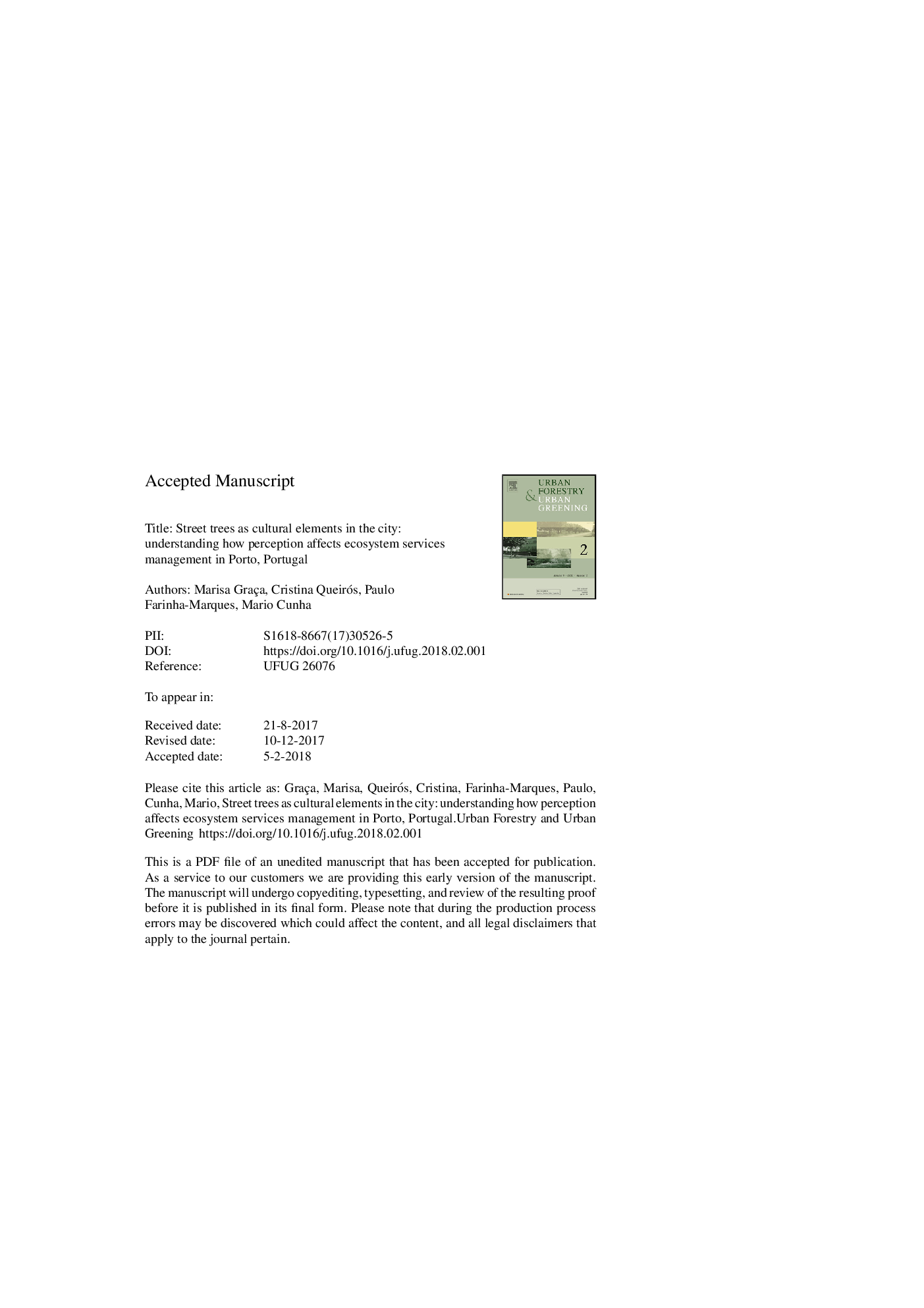ترجمه فارسی عنوان مقاله
درختان دره به عنوان عناصر فرهنگی در شهر: درک اینکه چگونه ادراک بر مدیریت خدمات اکوسیستم در پورتو، پرتغال تاثیر می گذارد
عنوان انگلیسی
Street trees as cultural elements in the city: Understanding how perception affects ecosystem services management in Porto, Portugal
| کد مقاله | سال انتشار | تعداد صفحات مقاله انگلیسی |
|---|---|---|
| 123746 | 2018 | 30 صفحه PDF |
منبع

Publisher : Elsevier - Science Direct (الزویر - ساینس دایرکت)
Journal : Urban Forestry & Urban Greening, Volume 30, March 2018, Pages 194-205
ترجمه کلمات کلیدی
عدالت محیطی، اولویت ها، سیستم های اجتماعی-زیست محیطی، ارزش های جامعه فرهنگی، برنامه ریزی شهری، سبز سازی شهری،
کلمات کلیدی انگلیسی
Environmental justice; Preferences; Social-ecological systems; Sociocultural values; Urban planning; Urban greening;

